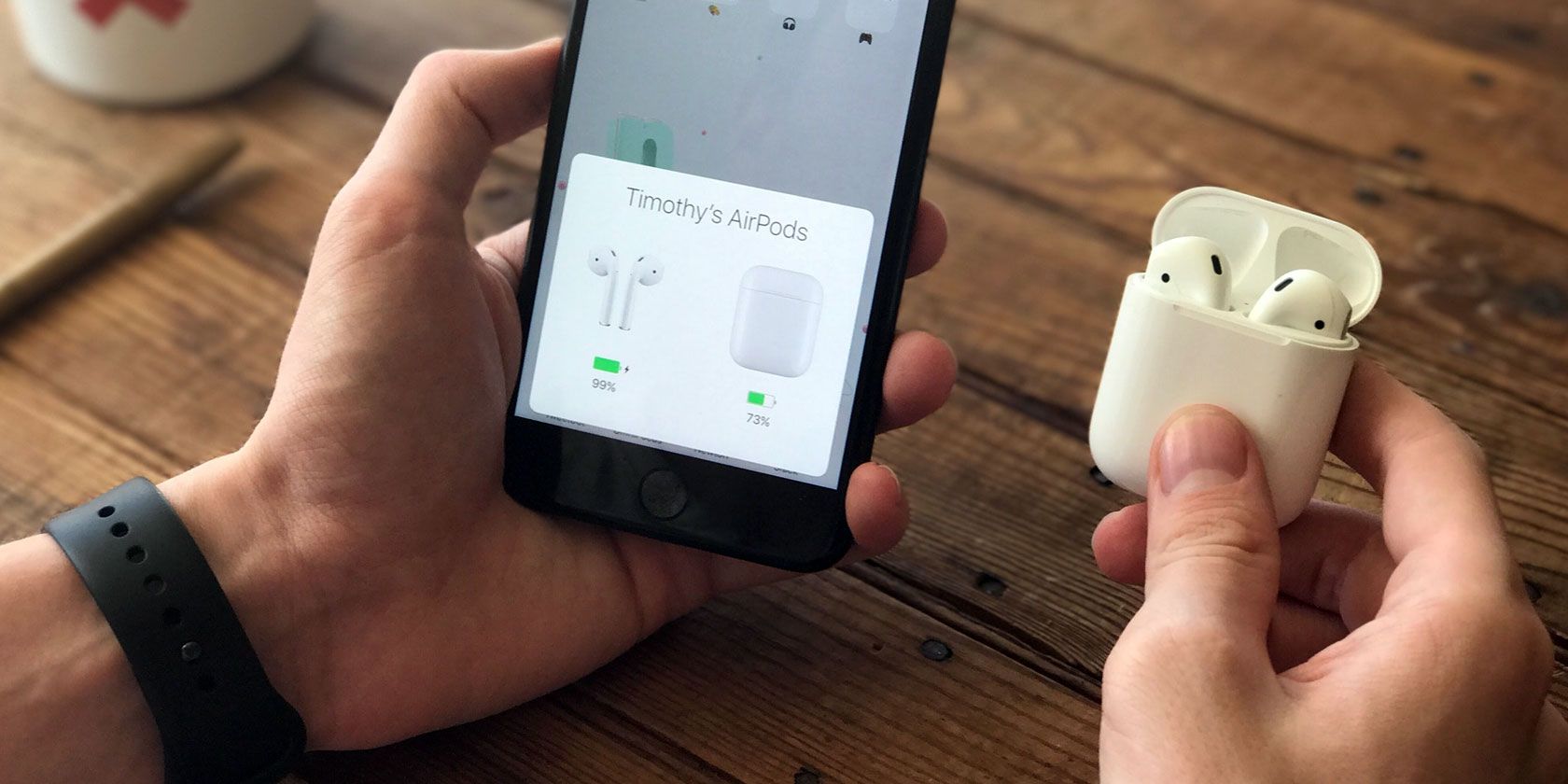
AirPods not working like they’re supposed to? As is often the case with wireless technology, it can be hard to know what to do when something goes wrong. Apple’s AirPods (our review) are no exception.
Fortunately there’s a quick fix for most problems, and a few other tricks you can try if your issues persist. Sometimes the problem isn’t with the AirPods at all, but rather the source device, ear wax, or an aging battery.
So here’s our AirPods troubleshooting guide for solving common issues.
How to Reset Your AirPods and Fix Most Problems
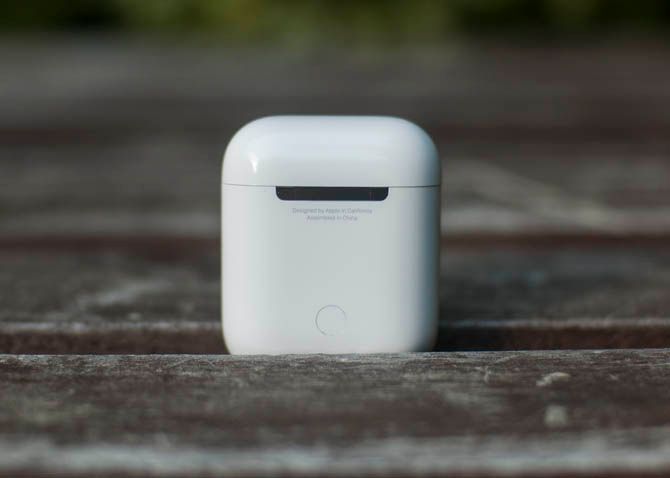
This tip takes the classic “turn it off and on again” philosophy and applies it to Apple’s wireless earphones. You can reset your AirPods back to an “as new” state by resetting them. After this, simply pair them with your iPhone again and everything should work as normal.
To reset your AirPods:
- Put both the left and right earbuds into the battery case.
- Press and hold the round button on the back of the case for 15 seconds until the LED flashes.
- Open your AirPods case near your iPhone and follow the pairing procedure.
You won’t need to pair your AirPods with every Apple device going forward, since the earphones automatically pair via iCloud.
1. How to Find Lost AirPods
You can use Apple’s Find My iPhone tool to locate your AirPods, but there are a few caveats to doing so. If they’re still powered on, Find My iPhone will use the device you’re connected to for a location fix. If your AirPods are in their case or have run out of battery, you will see their last known location.
To locate your AirPods:
- Head to iCloud.com in your web browser.
- Sign in and click on Find iPhone.
- At the top of the screen, click the All Devices dropdown list.
- Select your AirPods to see their location.
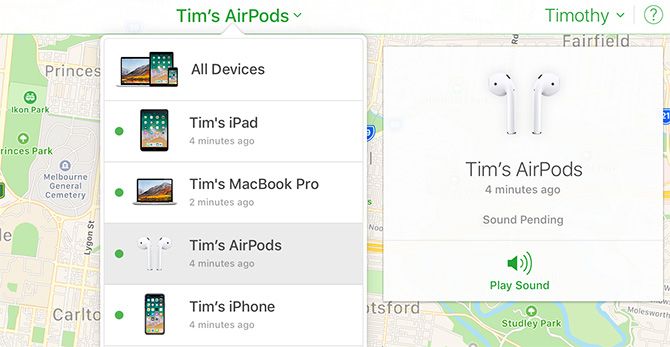
If you know your AirPods are somewhere in your house and you’re having trouble finding them, click the Play Sound option and listen for beeping. This won’t work if they’re both in the case and powered off.
2. Solving Patchy Audio and Static Problems
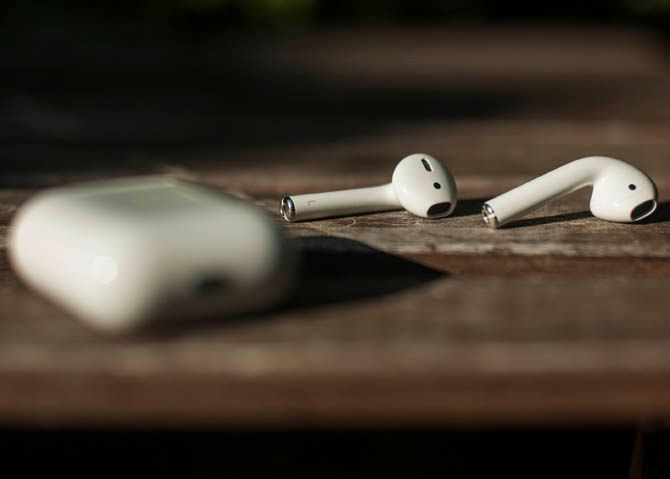
If you’re having audio problems, you might be too far from your source. Apple’s AirPods boast an impressive range of around 100 feet, but this can dip dramatically when you introduce obstacles like walls or sources of interference.
If you can put your source device (like an iPhone or iPod) in your pocket, this won’t be a problem anymore. For static sources like a computer, you’ll have to stay within range for optimal audio quality. It’s also possible for sources of interference to reduce the range of your AirPods.
In particular, Wi-Fi is known to interfere with the W1 chip inside your AirPods. You can help reduce this problem by turning off Wi-Fi on your iPhone, or moving to another area to take a call. You can try using your Mac to isolate areas of high Wi-Fi interference.
3. Stop Audio Playing and Pausing Erratically
Your AirPods have proximity sensors on them, which detect when you put them in or take them out of your ears. Doing so will automatically play or pause content unless you’ve specified otherwise. If your content pauses while your AirPods are still in your ears, it’s possible there’s a problem with these sensors.
You can disable the feature in your AirPod settings under Settings > Bluetooth > AirPods. Tap on the i next to your AirPods and toggle Automatic Ear Detection off. This will reduce battery life, since your AirPods will use the same amount of power whether you’re wearing them or not.
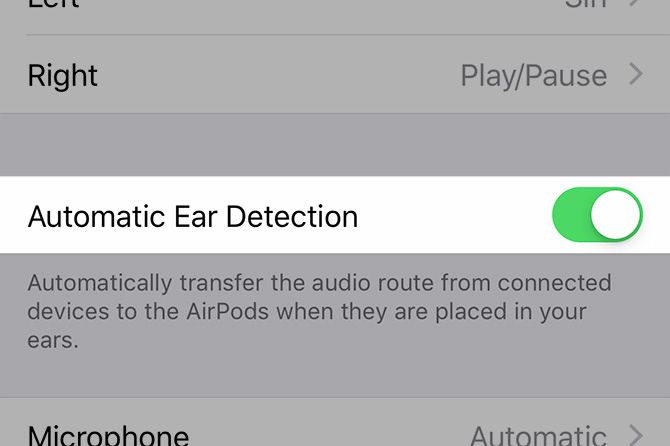
You may also want to try resetting your AirPods as discussed earlier. If you think there’s a problem with your AirPods and you can’t resolve this issue, it’s best to contact Apple Support for a possible repair or replacement.
4. Automatic Ear Detection Not Working
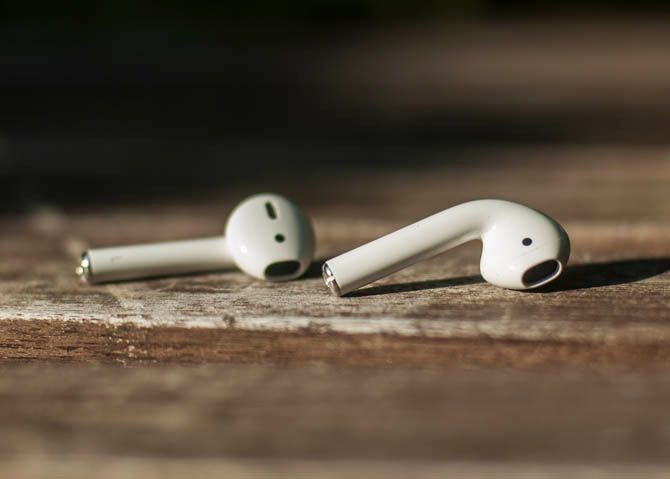
Automatic Ear Detection pauses your music or other content when you remove the AirPods from your ears. If this doesn’t happen for you, first check you have the feature enabled. Head to Settings > Bluetooth > AirPods, tap on the i next to your AirPods, then make sure Automatic Ear Detection is on.
Next, make sure your AirPods are clean! The proximity sensor will not work if ear wax or other gunk is covering it. This will cause your earphones to behave as if they’re constantly in your ears. Don’t forget to clean the case (it’s easy with a cotton swab and some isopropyl alcohol).
While you’re at it, why not give your iPhone a good clean too?
5. AirPods Won’t Connect to Your iPhone
If you can’t connect your AirPods to your iPhone, try putting them back into the battery case and waiting around 15 seconds. Take them out again, then try reconnecting. You can manually force the connection by opening Control Center, tapping on the top-right corner of the Now Playing box (pictured below), and manually selecting your AirPods.
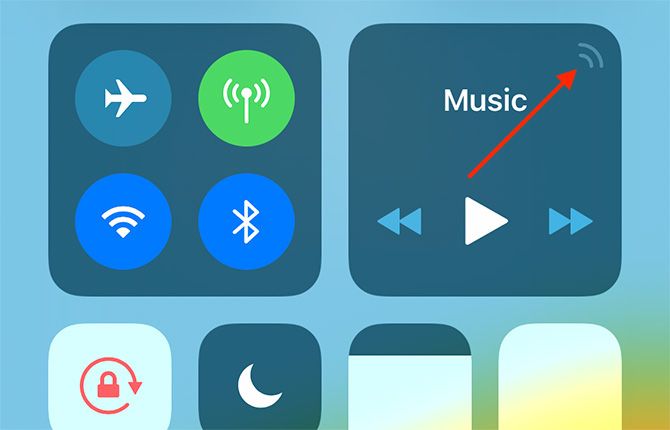
The problem may be isolated to your iPhone. Try disabling Bluetooth by toggling Airplane Mode on and off again (access Control Center, tap on the plane icon, wait a few seconds, then tap it again). If this still doesn’t work, restarting your iPhone may do the trick.
Still got problems? Reset your AirPods as per the above instructions and try pairing them again. If you don’t see any LEDs, your AirPods are out of battery. Charge them for a few minutes and then try again.
6. AirPods Won’t Connect to Your Mac
This is often a problem with older Macs, which have notoriously flaky Bluetooth chips. Begin troubleshooting by turning off Bluetooth. To do so, click on the Bluetooth icon in the menu bar at the top of the screen and select Turn Bluetooth Off. Wait a few seconds, then turn it back on and try again.
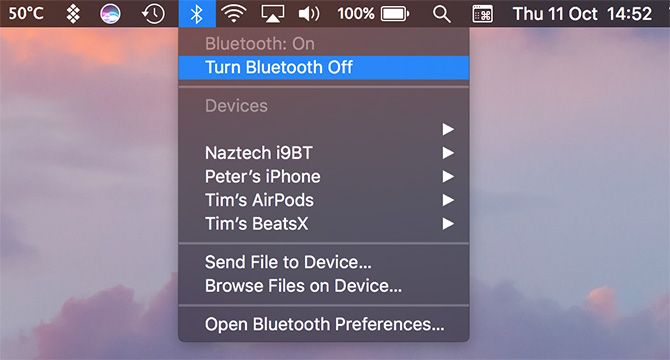
If that doesn’t work, you can also kill the Bluetooth daemon that runs in the background on macOS. Note that you will lose connection to other Bluetooth devices as part of the command.
To do this, open a new Terminal window and type:
sudo pkill blued
Hit Enter then type your admin password, followed by Enter again. Wait a second or two and try connecting your earphones again.
Still having problems? Restart your computer or check out our Mac Bluetooth troubleshooting guide for instructions on manually pairing and resetting your Mac’s known device list.
7. AirPods Won’t Charge
Some users have reported that their AirPods won’t charge properly. Apple recommends checking your charging cable first, which you can do by attempting to charge your iPhone with it. If this works, move on to checking the Lightning port instead.
Since many of us carry our AirPods in pockets and bags, fluff and other debris can become lodged in the charging port. You can clean these out using a thin, sharp object. I prefer using the same Apple SIM key you’d use to access the SIM tray on an iPhone. Simply scrape the inside down and remove anything that shouldn’t be in there.
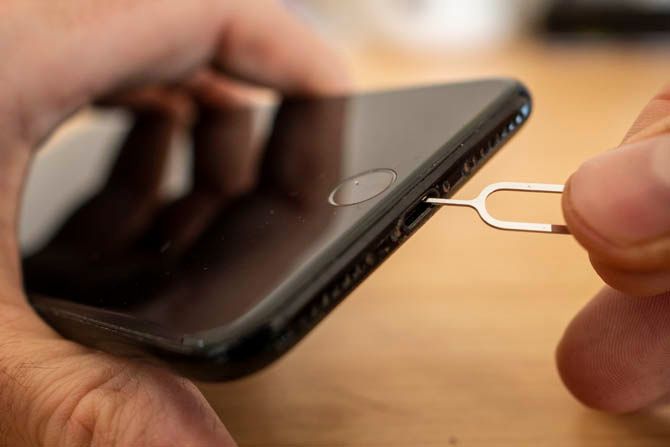
If you’re confident the cable works and there’s nothing stopping your AirPods from charging, leave them connected to a power source for 15 minutes and come back. If they’re still dead, it might be time to contact Apple for repair or replacement.
8. AirPods Battery Draining Too Fast
You can optimize your AirPods’ battery life by leaving Automatic Ear Detection enabled. Check this by heading to Settings > Bluetooth and tapping the i next to your AirPods. If it’s on, a software quirk may be causing your issue. In this case, you should reset your AirPods as detailed earlier.
Don’t forget that the battery in your AirPods and charging case are just like the battery in your iPhone. The more cycles these devices complete, the lower the overall battery charge. This simply how lithium ion batteries age.
Apple offers AirPods Service and Repair, allowing you to replace the batteries in your AirPods for $49 each, and the battery in your charging case for another $49.
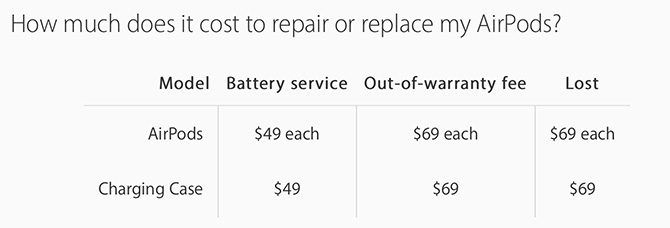
If your AirPods are still under warranty, you won’t be charged (check your warranty status).
Picking the Right Wireless Earphones
Apple’s AirPods are a great choice for iPhone users since they pair by proximity, use Apple’s Lightning port for charging, and communicate via the low-energy W1 standard. But they’re not the only wireless earphones and headphones that can do this.
Check out our list of recommended wireless audio solutions for iOS users!
Read the full article: 8 Common Apple AirPods Problems and How to Fix Them
Read Full Article
No comments:
Post a Comment